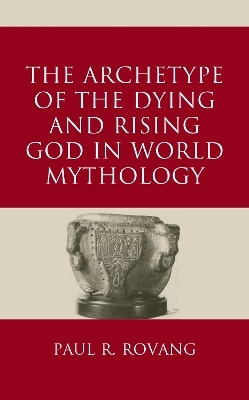
The Archetype of the Dying and Rising God in World Mythology
Seiten
2023
Lexington Books/Fortress Academic (Verlag)
978-1-6669-1708-6 (ISBN)
Lexington Books/Fortress Academic (Verlag)
978-1-6669-1708-6 (ISBN)
In this book, the author analyzes myths from around the world to argue for the existence of a dying and rising god archetype. In the process, he draws out interpretive implications of the myths for not only myth studies per se, but also studies in religion, literature, and psychology.
The Archetype of the Dying and Rising God in World Mythology is the first global treatment of the dying and rising god archetype since that classification was called into serious doubt in the final decades of the twentieth century. While assaults on the concept have focused on the Classical and ancient Near Eastern (Biblical) traditions, this study goes beyond but also includes these areas to encompass world mythology. Beginning with an interrogation of the most influential criticisms, the author then examines evidence for the archetype's validity by analyzing dying and rising god myths from ancient Near Eastern, Classical, and non-Classical sources from around the world. He treats implications of the archetype for religious studies, literature, and psychology, both in discussing the myths themselves and in separate chapters dedicated to these fields. The focused treatment on single myths makes this book a useful reference source. At the same time, its inductive approach to evidence provides a conclusive argument on the question with applications that warrant reading it from cover to cover. Additional distinctive features of this book include a thematic interpretation of T. S. Eliot's Waste Land, a new perspective on the Jungian archetypes, and a call for a neo-archetypal approach to literary criticism.
The Archetype of the Dying and Rising God in World Mythology is the first global treatment of the dying and rising god archetype since that classification was called into serious doubt in the final decades of the twentieth century. While assaults on the concept have focused on the Classical and ancient Near Eastern (Biblical) traditions, this study goes beyond but also includes these areas to encompass world mythology. Beginning with an interrogation of the most influential criticisms, the author then examines evidence for the archetype's validity by analyzing dying and rising god myths from ancient Near Eastern, Classical, and non-Classical sources from around the world. He treats implications of the archetype for religious studies, literature, and psychology, both in discussing the myths themselves and in separate chapters dedicated to these fields. The focused treatment on single myths makes this book a useful reference source. At the same time, its inductive approach to evidence provides a conclusive argument on the question with applications that warrant reading it from cover to cover. Additional distinctive features of this book include a thematic interpretation of T. S. Eliot's Waste Land, a new perspective on the Jungian archetypes, and a call for a neo-archetypal approach to literary criticism.
Paul R. Rovang is professor emeritus of English at Pennsylvania Western University-Edinboro.
Introduction
Chapter One: The Death of an Archetype?
Chapter Two: Other Ancient Near Eastern Candidates?
Chapter Three: Greco-Roman Connections
Chapter Four: Non-Classical and Traditional Cultures
Chapter Five: Jesus
Chapter Six: The Dying and Rising God in Literature: T. S. Eliot’s The Waste Land
Chapter Seven: The Dying and Rising God as Archetype
Conclusion
Bibliography
About the Author
| Erscheinungsdatum | 06.01.2023 |
|---|---|
| Sprache | englisch |
| Maße | 158 x 236 mm |
| Gewicht | 494 g |
| Themenwelt | Geschichte ► Allgemeine Geschichte ► Altertum / Antike |
| Geisteswissenschaften ► Religion / Theologie ► Weitere Religionen | |
| ISBN-10 | 1-6669-1708-7 / 1666917087 |
| ISBN-13 | 978-1-6669-1708-6 / 9781666917086 |
| Zustand | Neuware |
| Haben Sie eine Frage zum Produkt? |
Mehr entdecken
aus dem Bereich
aus dem Bereich
die Inszenierung der Politik in der römischen Republik
Buch | Hardcover (2023)
C.H.Beck (Verlag)
48,00 €
Buch | Hardcover (2024)
Klett-Cotta (Verlag)
50,00 €


